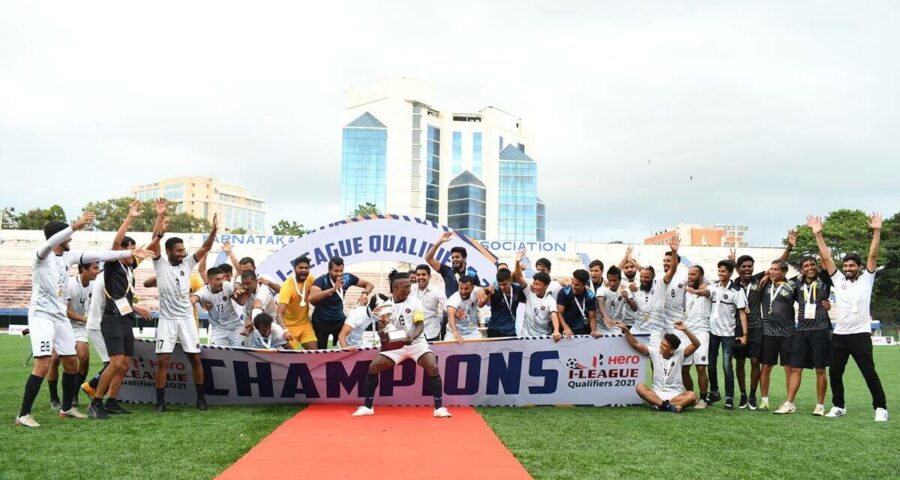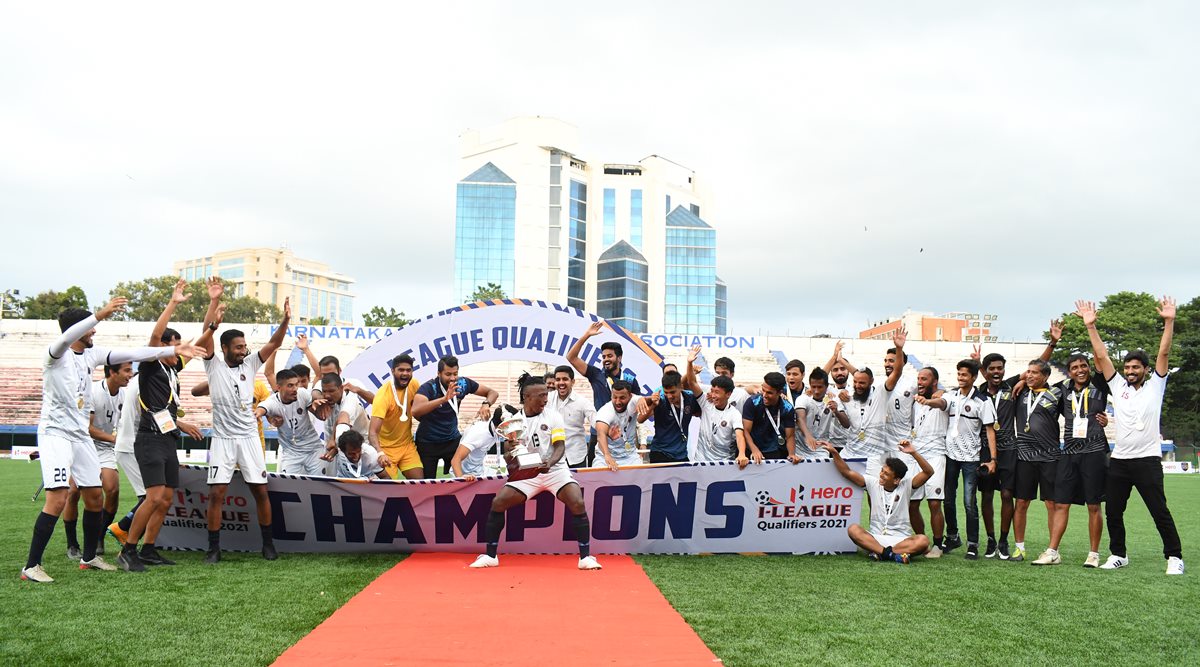Kamal Saroha, a 26-year-old civil engineer, is co-owner of Rajasthan United.
In 2014, a first-year engineering student started a football team at his college for a casual kickabout. Four years later, his side was asked to take part in the Rajasthan state league to make up the numbers. Last Saturday, the club, Rajasthan United, pulled off one of the most improbable heists in Indian football: qualifying for the I-League, Indian football’s second division.
“This feels like a Hollywood movie,” says Kamal Saroha, the 26-year-old civil engineer, who is the co-owner of Rajasthan United.
In the last few years, the I-League has produced many an underdog tale – be it the emergence of Bengaluru FC, the rise of Aizawl, the feisty Minerva Punjab, or the gritty performances by Real Kashmir.
With each passing season and every heart-warming story, the league expanded its footprint across the country. In that sense, Rajasthan United’s qualification carries forward the trend of minnows defying odds in Indian football.
At the same time, their rise is different.
Every region that witnessed these miracles on the field had some sort of football culture. Not Rajasthan, however. The state was home to one of India’s famous teams of the 60s and 70s, the Rajasthan Armed Constabulary.
But it has never had a professional club and hasn’t produced a player of repute since the two Rajvi brothers, Magan and Chain, who dazzled crowds across the country in the 60s and 70s.
This, the lack of culture, was Saroha’s first observation when he moved from Delhi to study at the Jaipur Engineering College and Research Centre (JECRC) in 2014. “Even the college didn’t have a team,” he says. So, he assembled a group of football-crazy students and formed one.
No one, though, imagined the casual post-lecture matches would turn into something serious, especially after the frequency of those games reduced during the final year, when campus placements were around the corner.
Saroha, who wanted to pursue sports management, reluctantly accepted a job offer from a Gurgaon-based infra firm upon the insistence of his family. “But it was so frustrating,” he says. “You can imagine the life of a just-graduate engineer trainee. No football… The frustration reached such a level that, one day, I started crying in front of my mother.”
After six months, Saroha quit his job, left Delhi and returned to Jaipur where, along with a friend, he launched a sports apparel company, which supplied kits to local football teams in Rajasthan.
One of their clients was AU Rajasthan FC, now named Rajasthan Perfect, who harboured the hopes of competing in the second division of I-League. In 2018, an AU Rajasthan official approached Saroha with a request to field a team in the state league the following year.
“They were falling short by one to meet the minimum criteria – without eight teams, they couldn’t conduct the state league. And if that tournament did not take place, a club from Rajasthan would not be eligible to compete in the second division of the I-League,” Saroha says.
At first, the then 23-year-old laughed at the mere thought of forming a team that would compete in the Rajasthan League. But after a lot of convincing, he agreed.
“I revived some of my contacts from JECRC FC and got a few players from there. The rest we got from other parts of the state. It was bizarre. AU Rajasthan had A and B licensed coaches… I was gathering everyone only on relation,” Saroha says. “I couldn’t even afford to pay anyone but the players were more than happy to take part as long as their food and accommodation were taken care of.”
The JECRC FC team comprised teachers, physical trainers and students. And, the team that was there just to make up the numbers defeated the professional outfit that AU Rajasthan was to become 2019 Rajasthan League champions and become the state’s entry for the I-League second division.
“Suddenly, I was in an alien territory,” Saroha, who had only ‘managed’ his college team before this, says. “I knew what the second division was but had no idea about the rules. I downloaded all the documents and educated myself,” he says. But it was all too overwhelming and that year, the club gave the second division a pass. “We weren’t prepared for it.”
In 2020, when the football world, like the rest of the planet, came to a standstill owing to the pandemic, Saroha made sure he was prepared for the next season. He first made two of his friends – Rajat Mishra, an entrepreneur and Swapnil Dhaka, a footballer – ‘co-founders’ of the club. The trio renamed JECRC FC to Rajasthan United, then tied up with an international school in Bhilwara to set up a residential academy and began scouting for youth players across Rajasthan.
When the state league returned in July 2021, they were better placed than before. But Rajasthan United finished second behind another state heavyweight, Zinc, who entered the I-League second division on the virtue of being the champions.
Zinc, however, were unable to meet All India Football Federation’s licensing criteria, which made them ineligible to compete. Consequently, Rajasthan United, who were next in the queue, snuck in. “On August 30, we got to know we go for the qualifiers. And 31st was the last day to register the players,” Saroha says.
The club’s chief executive, Dinesh Negi, the three co-founders and coach Vikrant Sharma began negotiations at express pace. “We signed almost a dozen players in a very short span. In fact, the registration of our centre-back, Gurmukh Singh, was completed at 11.59 pm, one minute before the deadline!” Saroha says.
Their campaign, too, was touch and go.
Boots which cost Rs 500
When Rajasthan United landed in Bangalore, where the I-League second division was held earlier this month, not many gave Rajasthan United a chance. More so, after their first game against Shillong’s Rynith FC where they went 3-0 up but almost threw away the lead before holding on to win 3-2.
“No one expected us to do a lot after that match,” Saroha says. “We were a team with players who’d been together for a few weeks, while others had been training for months and competed in a couple of tournaments, too. Some of our players were playing with shoes that cost Rs 500. It was a complete mismatch.”
But coach Sharma, who played for Goan giants Dempo and Churchill Brothers, made sure his team remained unbeaten throughout the tournament and crucial wins over Delhi and Bhopal-based Madan Maharaj put them in pole position to qualify for the I-League.
In the final match, Rajasthan just needed to avoid defeat against Mumbai’s Kenkre FC, who had to win to qualify. On a sunny Saturday afternoon, true to a movie script, goalkeeper Vishal Joon, after a forgettable start to the campaign, produced a heroic performance and Rajasthan held on to a goalless draw to qualify for the I-League.
“It’s tough to describe all that’s happened,” Saroha, who has begun his hunt for an investor for the I-League, says. “All this was just for fun.”
But now, his team has helped Indian football conquer a new frontier: Rajasthan.
Source: Read Full Article



